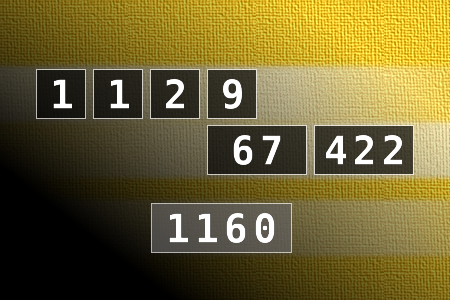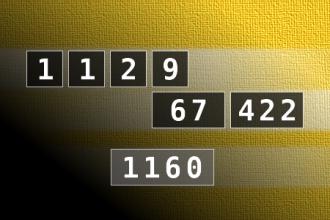Calculate the number 1160
NUMBERMANIA: Calculate the number 1160 using numbers [1, 1, 2, 9, 67, 422] and basic arithmetic operations (+, -, *, /). Each of the numbers can be used only once.Correct answers: 10
The first user who solved this task is Nasrin 24 T.
#brainteasers #math #numbermania


